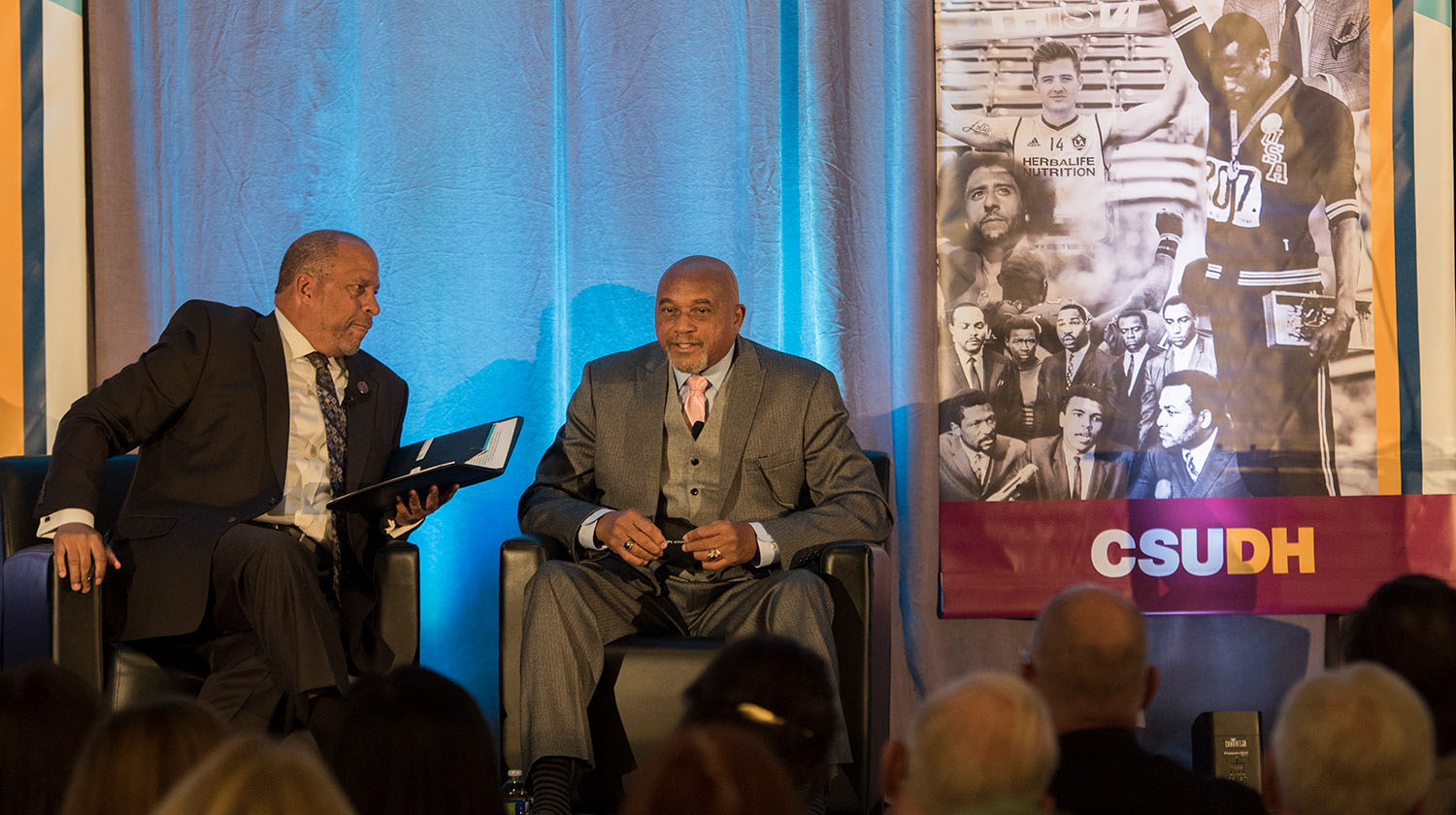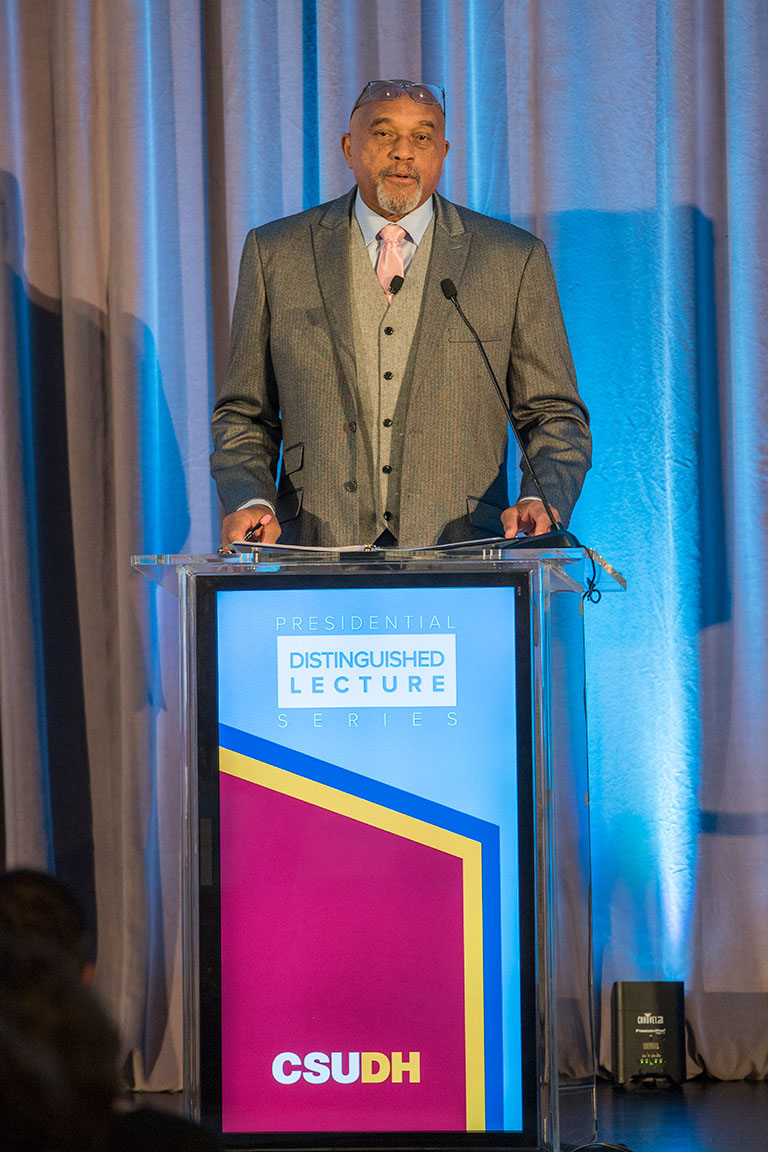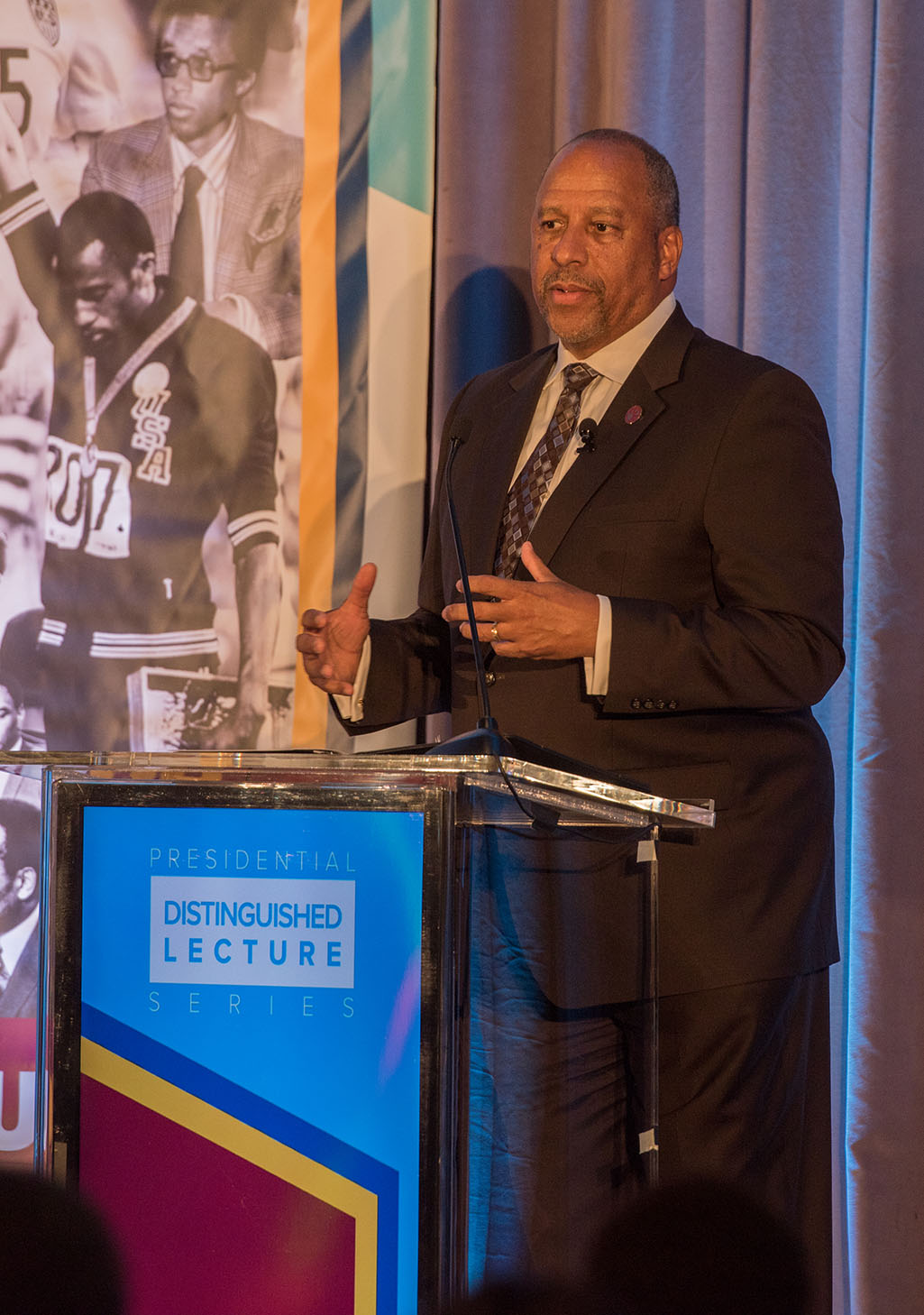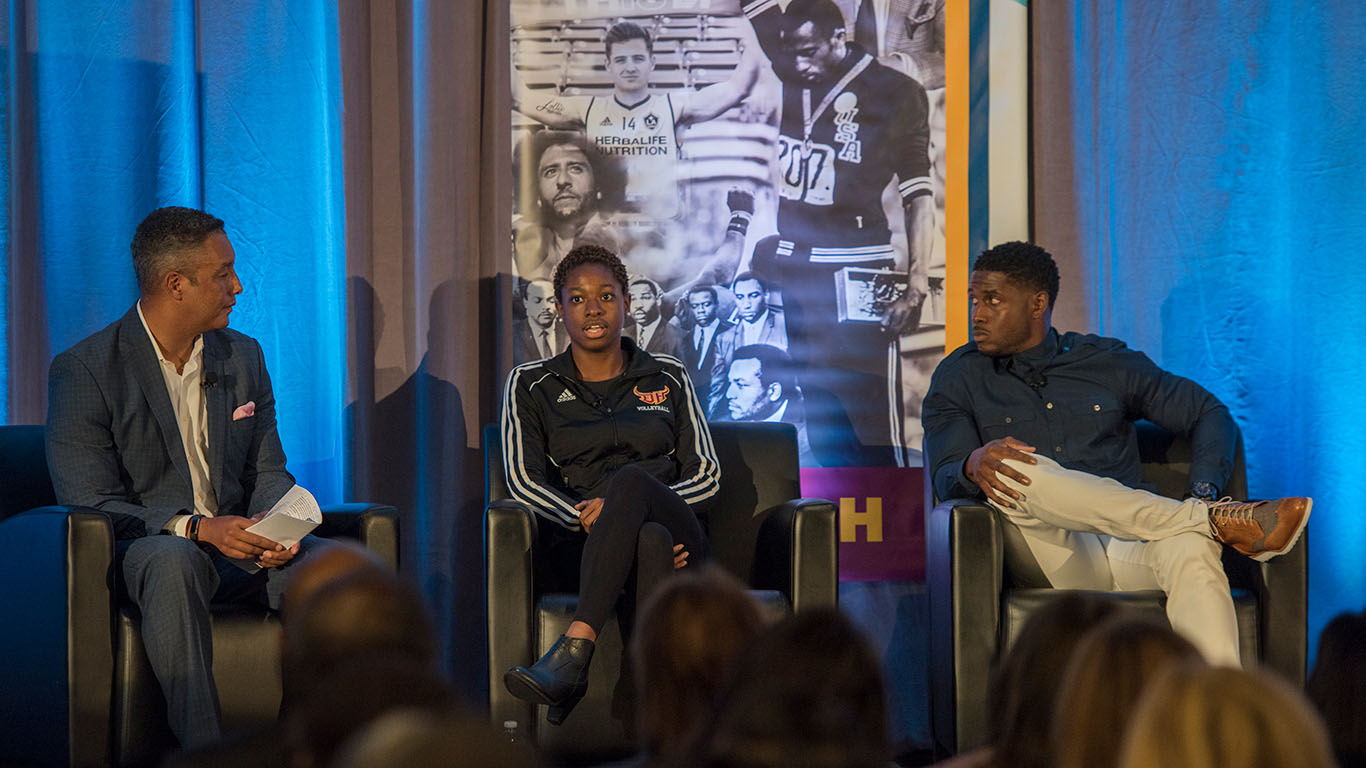
“Some of us may feel protected from social bias because we have a good job, we are the right color, we smile a lot, or because we have friends in high places. You know, the higher you think with that love of social ignorance, the further you will fall when you realize what is all around you.”

This profound reality check was offered by Tommie Smith, the legendary Olympic gold medalist who bowed his head and raised a clinched fist in a black glove on the medal podium at the 1968 Mexico City games as a gesture against inequality and injustice. The civil rights icon shared those words as the keynote speaker during California State University, Dominguez Hills (CSUDH) inaugural Presidential Distinguished Lecture Series on Nov. 7.
Titled “Silent Gesture: Athletics and Courageous Conscience,” the lecture series honored Smith for his difficult decision to transform his personal achievement into a platform for speaking out for civil rights and commemorated the 50th anniversary of Smith’s protest.
The lecture series was established by CSUDH President Thomas A. Parham to engage the campus and surrounding community in thought-provoking discussions on some of society’s most pressing issues. Parham welcomed the nearly 250 attendees to the event, many of whom were dignitaries and residents from the local communities. Parham used his remarks to share his vision for the annual lecture series, calling attention to its “higher aspirational purpose,” its design to challenge biases and assumptions, and to “disrupt your sensibilities about why what such speakers say should matter.”

“California State University, Dominguez Hills and higher education generally should be the place where issues of community importance and social justice become the topics of critical discourse and analysis,” said Parham. “Our feature speaker, it is not just about how fast or brilliant of an athlete he was. It is fundamentally about the courage and character of the man, who in the course of exceptional athletic feats chose to use the platform and summon the courage to speak out against the social injustice that plagued American society.”
Smith’s remarks focused on the importance of quality conversations and comprehension, and the self-expression it enables. Smith also addressed both the positive and negative outcomes that followed that moment in 1968 that changed his life forever
“I stand firm on this platform today abiding in the retrospective belief that conversation and the continuous sharing of ideas leads to optimism and an open form of topical understanding where differences may productively collide,” said Smith. “What makes change lasting and strong is the concentration of personalities. Sacrifice for human advancement is redemptive, but if you don’t believe in the self you may fall for someone else’s misfortune.”
Smith also explained that his “silent gesture” on the Olympic podium that was “catapulted by silence and heard around the world” was a cry for freedom that highlighted truths that many ignored.
“I believed in 1968, and I still do, that standing on a platform for social justice at any time is redemptive; that in the pain of our sacrifice there can be no greater pain than that of those who perished on the historical path of hope as they fought for justice to secure that seed of progress that we sit in today,” he said. “So courage must be the byproduct used to continually fight inequality, which is still on a rampage in America today. But a battle is never won if at first you don’t engage.”
Following Smith’s remarks he sat down with President Parham for a short Q&A, which led into a panel discussion focused on how Smith’s courageous act has inspired generations of athletes to speak out on social and political issues. The panel was moderated by Steve Wyche, a reporter for the NFL Network’s show “Total Access,” and first to report on former NFL player Colin Kaepernick’s now-famous protest during the national anthem. The panelists included retired NFL star Reggie Bush, who spoke out about the officer-involved deaths of Erik Garner and Michael Brown that made national headlines and sparked the Black Lives Matter movement.

“For the NFL players, when Colin Kaepernick took a knee, a lot of guys were frustrated because the narrative changed; the narrative that we don’t appreciate our military, or somehow we are being disrespectful toward the military,” said Bush. “A lot of us–including myself–have family members who fought in wars and come from military backgrounds. For someone to say that is hurtful. We love our military and our flag, we just have an issue with all the social injustice going on.”
Rounding out the panel were Tamica Smith Jones, athletic director at UC Riverside and a leading voice on women in sports and minority coaches, and Esther Duru, a sociology major and middle blocker for CSUDH’s women’s volleyball team.
During games, Duru has also taken a knee or looked down at the floor in silent protest of d the current social and political climate in the country.
“When we talk about intersectionality we talk about race, sex, and gender–there’s inequality, there’s police brutality, there’s lack of fair pay for women, and a lack of resources,” said Duru. “So when I look at the flag it is not resonating with me well to stand up with my right hand over my heart when the lyrics in the national anthem don’t really resemble what’s happening in society. The anthem talks about the land of the free and the home of the brave; but the questions is, who’s really free? There are so many people struggling and being silenced.”